As we prepare to enter a new year, we look forward to telling many more stories of hope and healing at UNC Lineberger Comprehensive Cancer Center.
We look forward to sharing the next big breakthrough in cancer research and treatment. We look forward to sharing more stories of compassionate cancer care. We look forward to championing our patients throughout their cancer journey. Most importantly, we look forward to growing and continuing to serve as a beacon of cancer care and research in North Carolina and beyond.
Join us as we reflect on stories from 2021 that inspired us throughout the year.
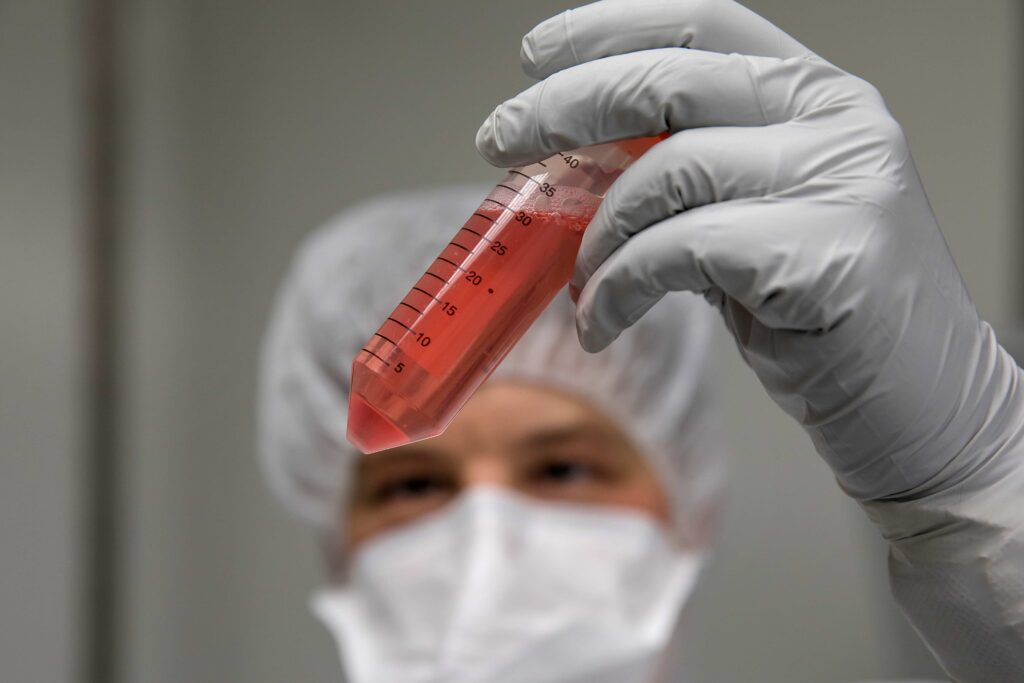
Engineered safety switch curbs severe side effects of CAR-T immunotherapy
Gianpietro Dotti, MD, Matthew Foster, MD, and colleagues demonstrated that an experimental safety switch incorporated as part of a chimeric antigen receptor T-cell (CAR-T) therapy can reduce the severity of side effects that sometimes occur with the immunotherapy.
The iC9 safety switch proved effective in quickly reducing immune effector cell-associated neurotoxicity syndrome (ICANS) that developed after a person received CAR-T therapy to treat refractory acute B-cell leukemia. The successful outcome demonstrates a proof-of-principle for possible expanded use of CAR-T immunotherapy paired with the safety switch.
Read full story on CAR-T safety switch
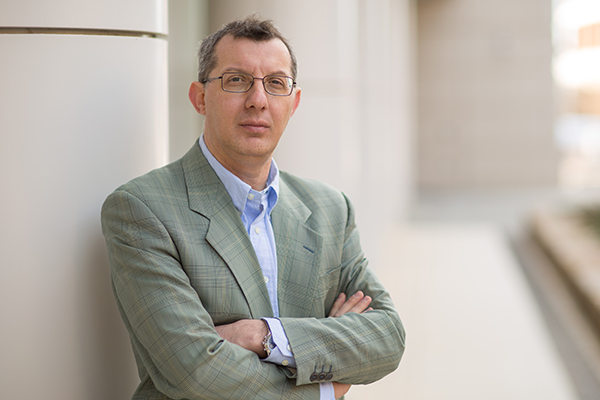
“Even though this case study only documents an outcome in one patient, the fact that the drug was so successful so quickly gives us hope that it could have wider applications in a larger group of leukemia patients.”
—Gianpietro Dotti, MD
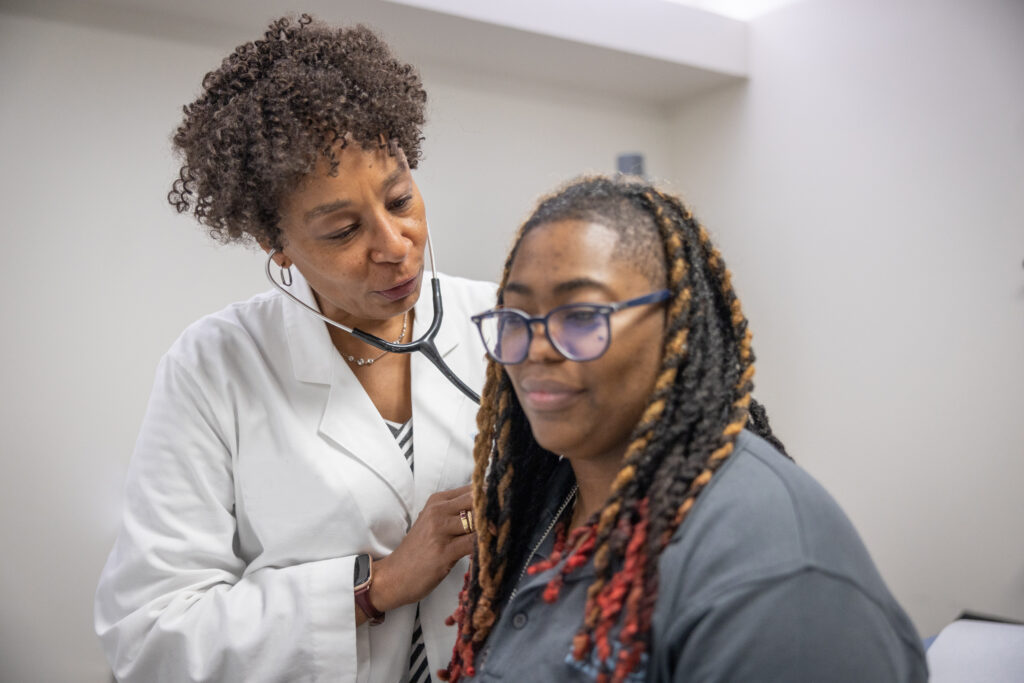
Endometrial Cancer Center of Excellence focused on advancing research and care, eliminating disparities
UNC Lineberger launched the Endometrial Cancer Center of Excellence to advance the scientific understanding of the causes, prevention and clinical treatment of endometrial cancer, which is increasing in incidence in the United States.
The center will leverage UNC Lineberger’s expertise in conducting large scale population studies, investigating health disparities, and studying the pathology, epigenetics and genetics of endometrial cancer. Researchers will also investigate the connection between the microbiome – the trillions of microorganisms, including bacteria, fungi and viruses that live in a person – and endometrial cancer, with a specific focus on racial disparities in endometrial cancer.
Read full Endometrial Cancer Center of Excellence announcement
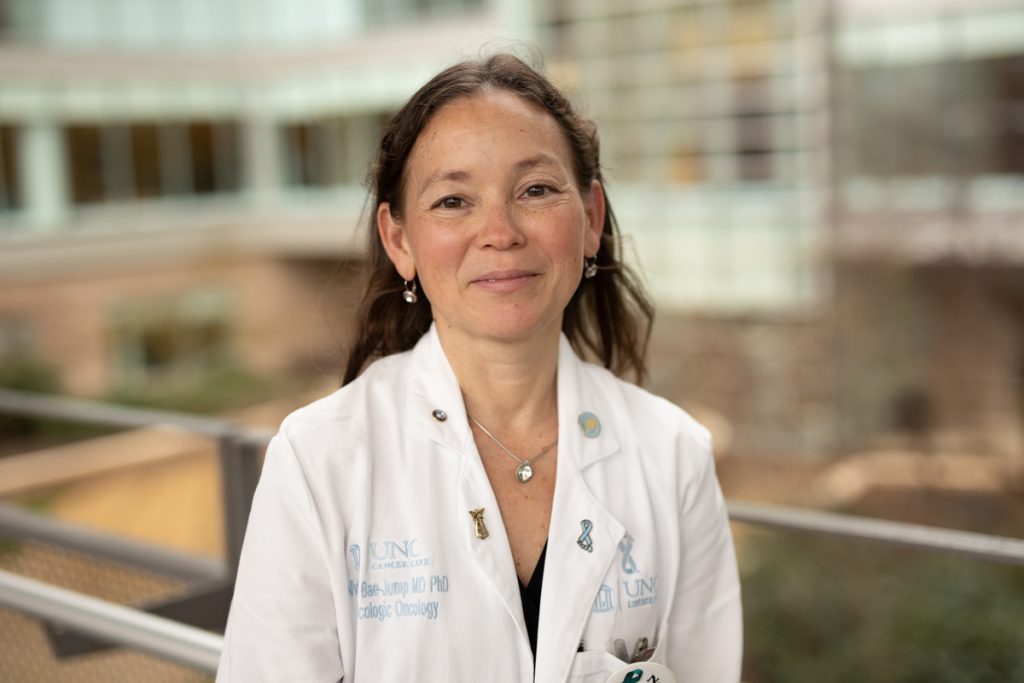
“One of the main reasons that endometrial cancer is so difficult to treat is that it has largely been understudied over the years. As evidence of this, until the approval of a combination therapy for advanced endometrial cancer in July 2021, there have been no FDA-approved drugs for endometrial cancer in more a decade. The Endometrial Cancer Center of Excellence is committed to changing this.”
—Victoria Bae-Jump, MD, PhD
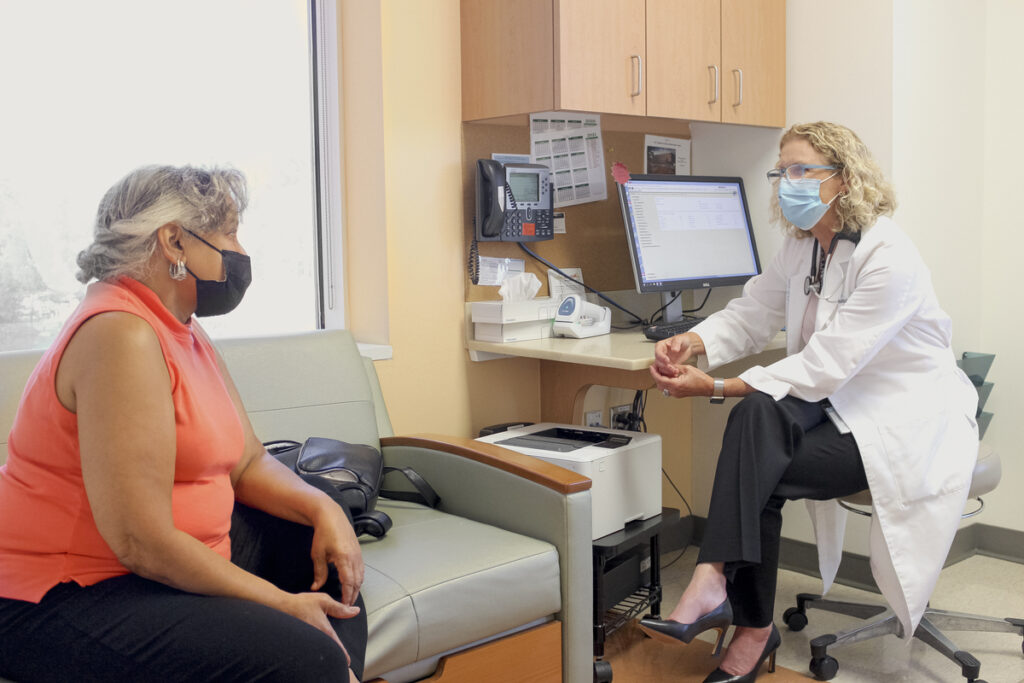
$1 million gift furthers landmark study focused on reducing breast cancer disparities, barriers to high quality care
Rich Preyer and Marilyn Jacobs Preyer of Hillsborough, North Carolina, donated $1 million to support the latest phase of UNC Lineberger’s Carolina Breast Cancer Study (CBCS). This gift builds on the couple’s longstanding commitment to advancing breast cancer research and breaking down barriers to high quality health care for everyone.
UNC Lineberger and UNC Gillings School of Global Public Health researchers launched the CBCS in 1993 to bring together their collective expertise in epidemiology and molecular biology to identify a wider range of breast cancer risk factors, and to better understand how these risk factors contribute to disparities in breast cancer among Black and white women.
Read full story on gift supporting the Carolina Breast Cancer Study

“We are so grateful for philanthropic partners like Marilyn and Rich. They recognize the importance of our work to explore and address the disparities in breast cancer care, treatment and survival outcomes. They are passionate about health inequities and are investing in us to analyze the problems and implement solutions.”
—Shelley Earp, MD
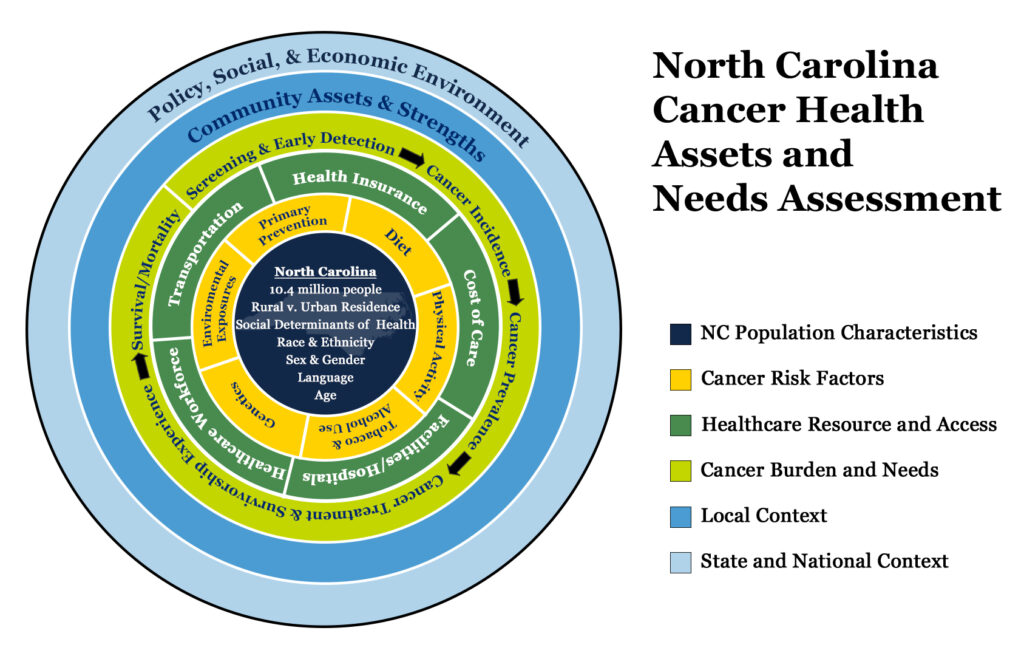
Expanded community data project will improve understanding of cancer across North Carolina
UNC Lineberger’s Office of Community Outreach and Engagement has begun a major, new data driven initiative – the Community Health Assets and Needs Assessment (CHANA) – that will comprehensively describe the cancer burden in North Carolina, including factors that influence cancer patterns and outcomes, and especially the needs of cancer patients throughout the state and the resources available to support them. The insights generated will help influence the cancer center’s approach to cancer prevention, early detection and treatment research, as well as cancer and survivorship care.
Read more about the CHANA initiative
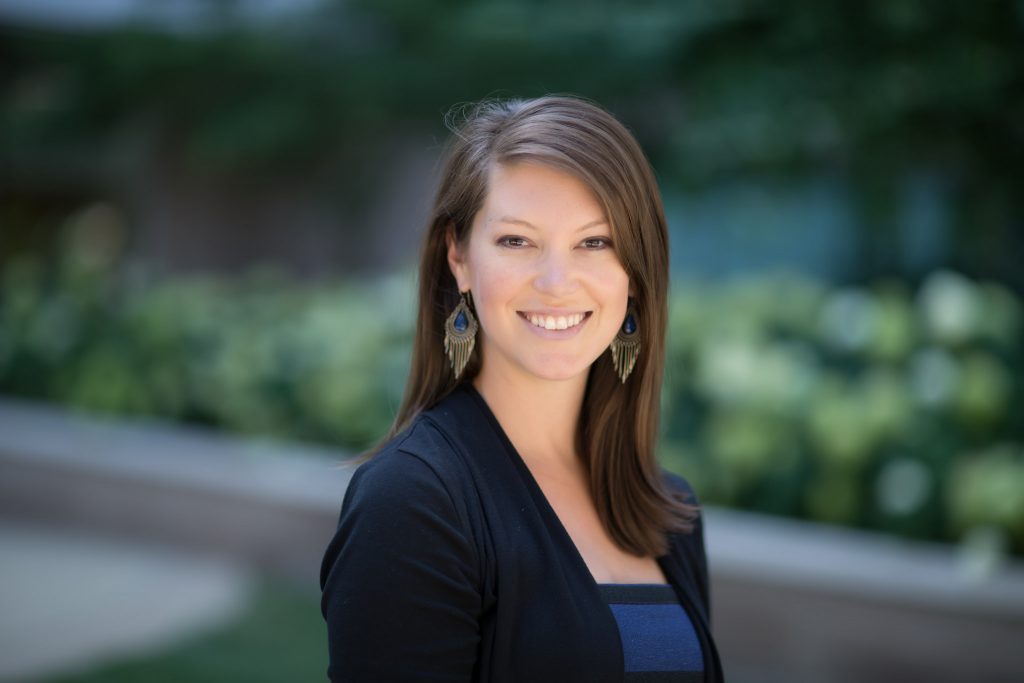
“Beyond UNC Lineberger, we hope this will serve as a research tool for other researchers and academic institutions, a source of information for policymakers and the legislature, and an easy-to-use resource for patients and communities. Having data about your own community can be powerful.”
—Stephanie Wheeler, PhD, MPH
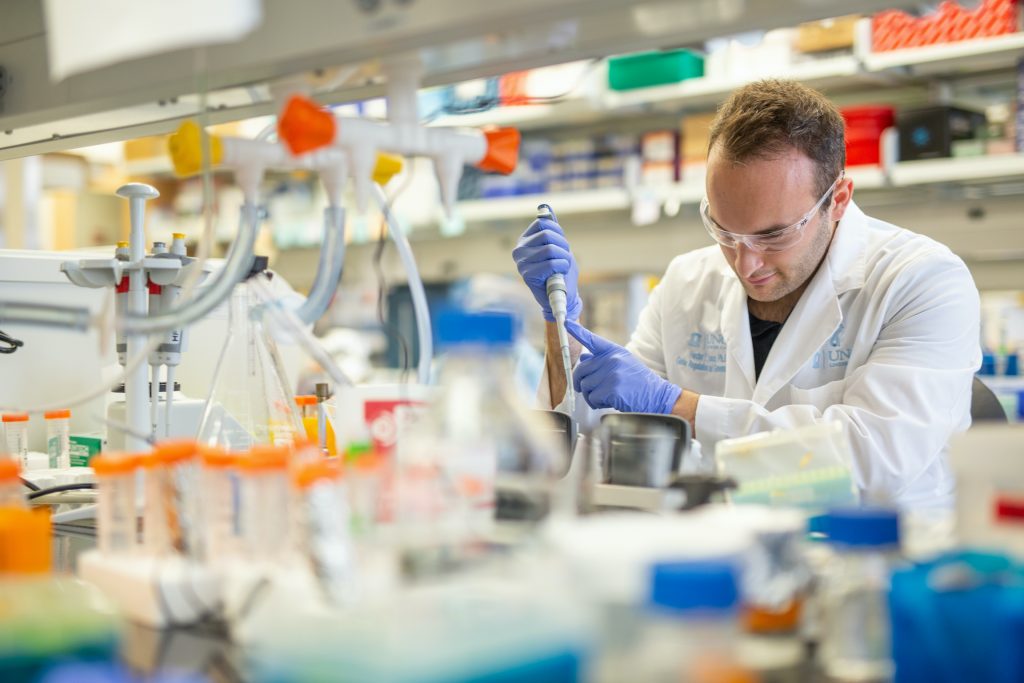
Susan G. Komen announces $1.5 million in grants for metastatic breast cancer research
Susan G. Komen awarded three $500,000 grants in support of metastatic breast cancer research as part of a collaboration between Komen, UNC Lineberger and Duke Cancer Institute.
The Susan G. Komen Metastatic Breast Cancer Collaborative Research Initiative will pair researchers at UNC, including Katie Hoadley, PhD, Melissa Troester, PhD, and Benjamin Vincent, MD, with researchers at Duke to work together to address significant knowledge gaps about metastatic breast cancer to advance patient care and improve patient outcomes.
Read full story on the collaborative breast cancer research project
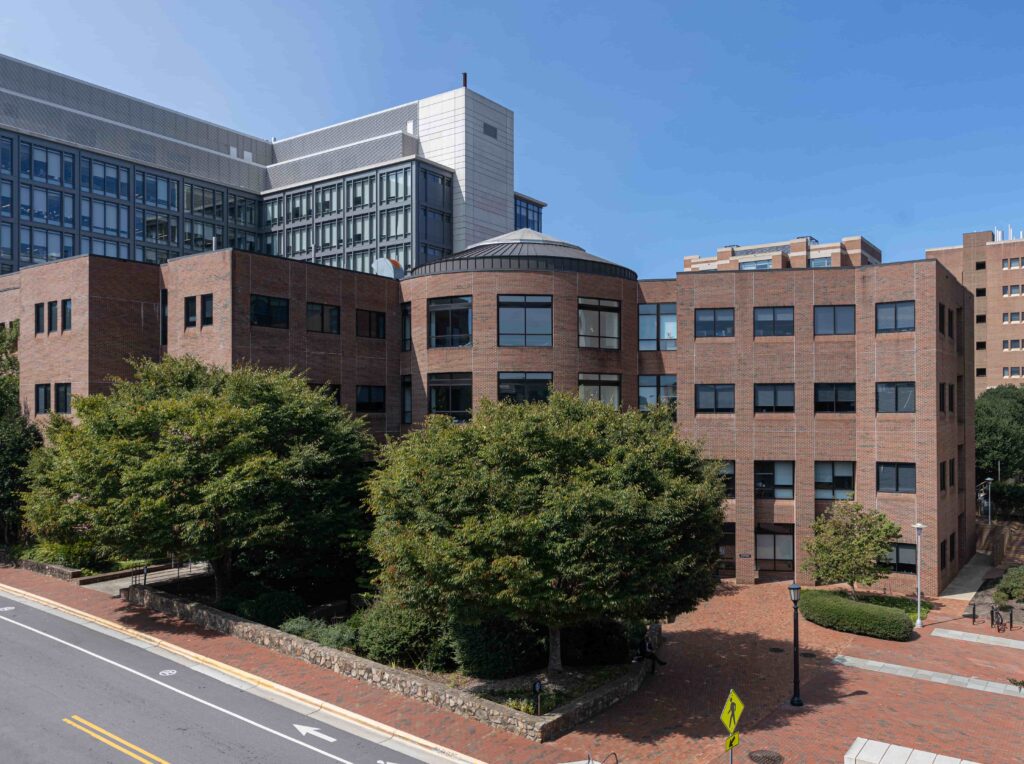
“This bold investment by Komen and its supporters is aimed at changing our fundamental understanding of metastatic breast cancer. Combining the creative minds of two of the country’s premier cancer centers is the way to probe the longstanding problem of breast cancer spread […] and will identify the biological and societal drivers that contribute to disparities in breast cancer outcomes among Black and white women.”
—Shelley Earp, MD
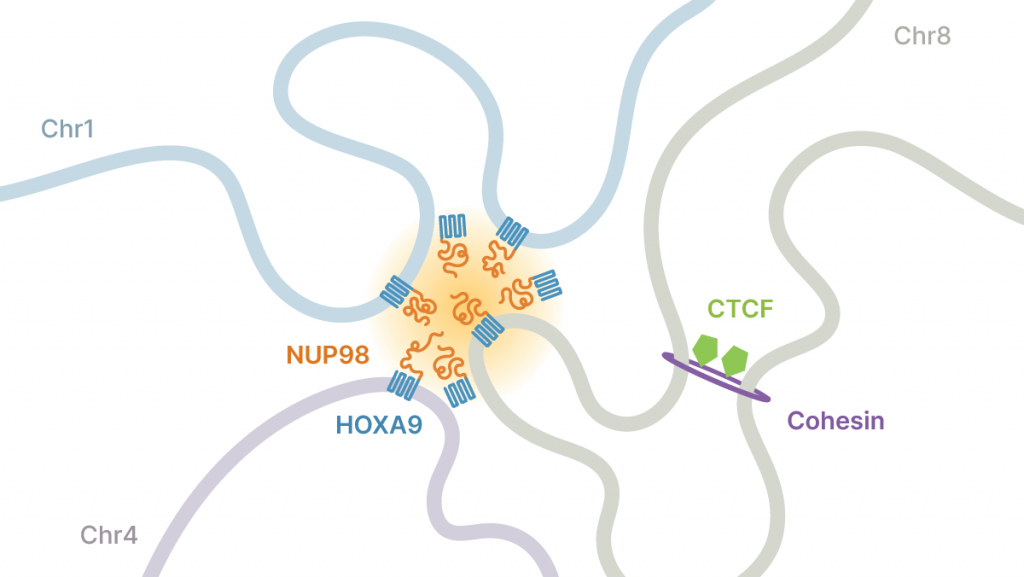
This model depicts how NUP98-HOXA9 oncoproteins promote phase separation to activate specific genes, which leads to cancer. (Illustration credit: Erika Deoudes)
Scientists uncover new mechanism that enables development of cancer
Greg Wang, PhD, Douglas Phanstiel, PhD, and colleagues have uncovered a new mechanism that activates specific genes, leading to the development of cancers.
They showed that a mutation that fuses two unrelated genes can promote a process similar to that observed when oil and water are mixed but do not blend together. The process, called liquid-liquid phase separation, occurs inside a cell’s nucleus and enables the formation of compartments with various physical properties that can promote cancers, such as acute leukemias.
Read more about the phase separation research
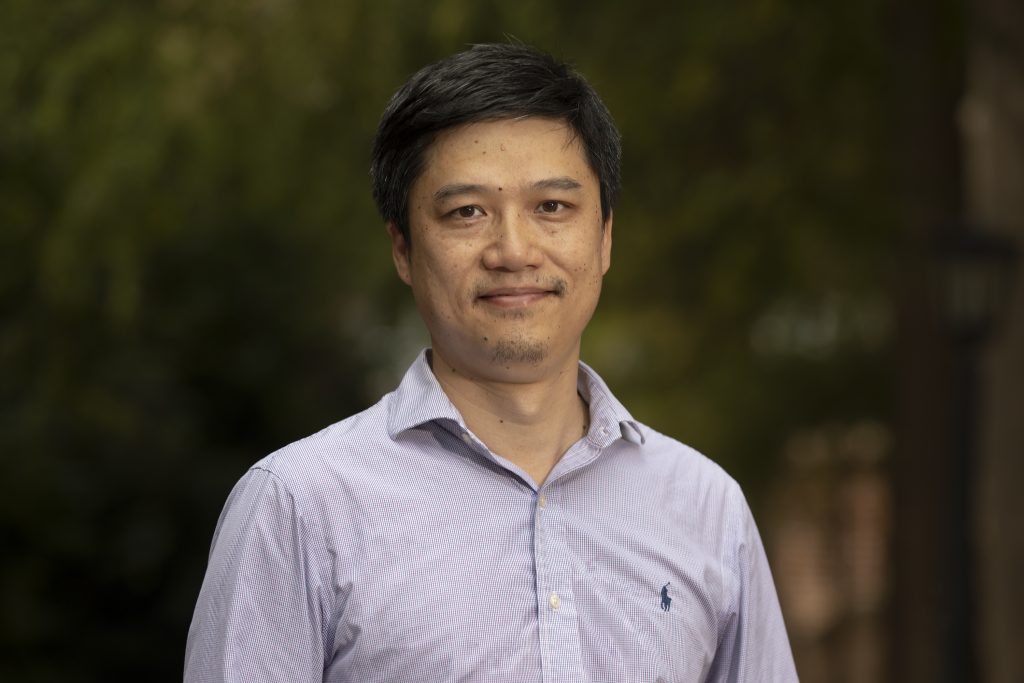
“We hope to look into possible therapeutic agents that target phase separation, as we know that this process can also impact neurodegenerative diseases such as Alzheimer’s where plaques that build up in the brain may be due, in part, to liquid-liquid phase separation.”
—Greg Wang, PhD
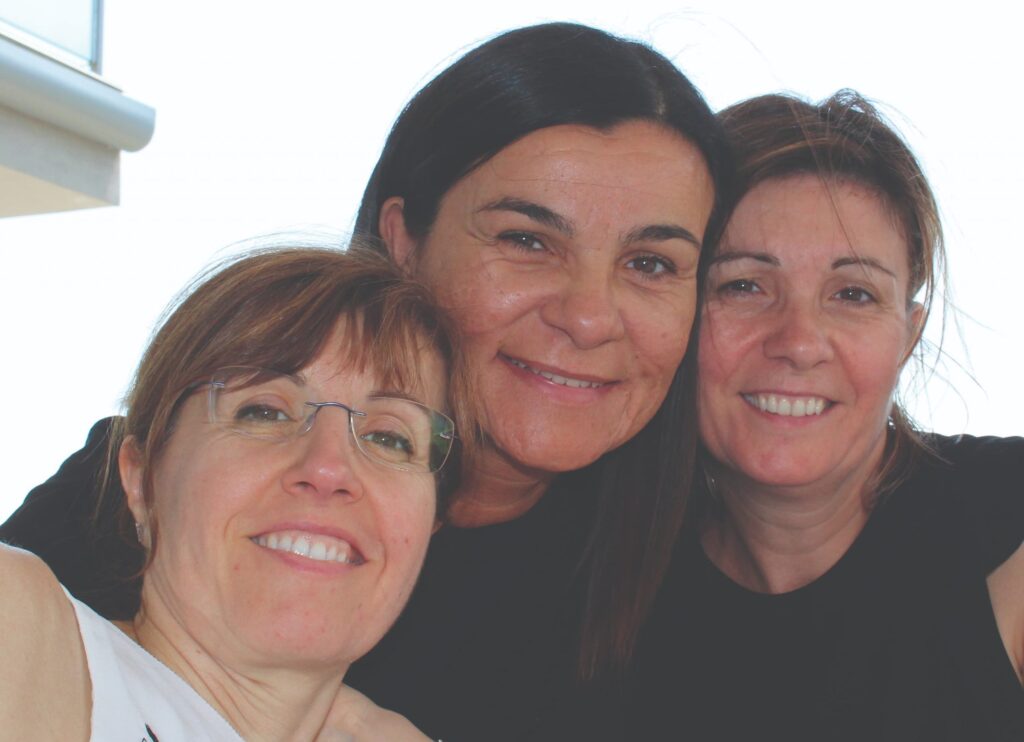
Scientists make donation when cancer hits close to home
Barbara Savoldo, MD, PhD, and Gianpietro Dotti, MD, have been at UNC Lineberger for only six years, but they have quickly made profound contributions clinically and scientifically, and, most recently, philanthropically. Their CAR-T research has the potential to help people worldwide, but their research to develop a CAR-T therapy for glioblastoma (GBM), an aggressive brain cancer, is personal.
In July 2019, Savoldo’s youngest sister, Sonia, was diagnosed with GBM. Knowing there are limited treatments for GBM, Savoldo and Dotti made a gift to UNC Lineberger to establish the Sonia Savoldo GBM Fund to advance immunotherapy research for GBM and to assist patients experiencing financial hardships.
Read about the gift supporting CAR-T therapy for glioblastoma

“Though she has never complained about her own situation, Sonia has told me the most painful part of ‘joining the cancer patient club’ is seeing many families struggling, coming from much farther away, having to spend weeks or months away from home to access the best care. So, in addition to support research, we really wanted to make sure that anyone in need has access to such therapies regardless of their means.”
—Barbara Savoldo, MD, PhD
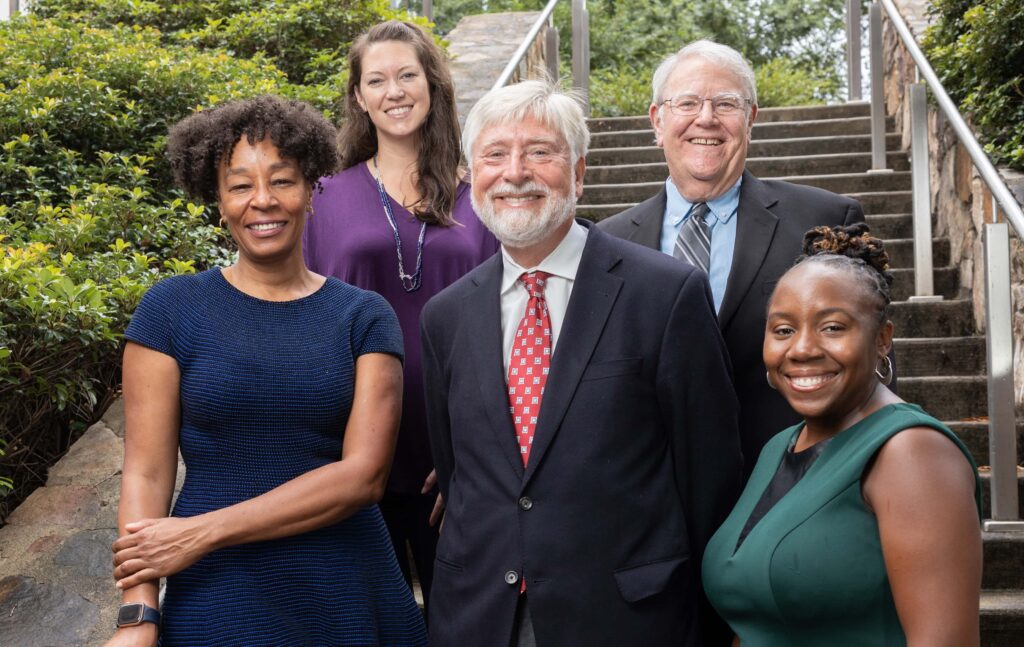
Brewster named associate director of Diversity, Equity and Inclusion
UNC Lineberger appointed Wendy Brewster, MD, PhD, as associate director of Diversity, Equity and Inclusion (DEI). The newly created position underscores the cancer center’s commitment to identifying and addressing issues and organizational structures that impede the development of a more inclusive and diverse workplace, as well as enhancing the cancer care of all North Carolinians. Brewster’s appointment recognizes her consistent leadership in advancing critical initiatives in each of UNC Lineberger’s missions.
Read full announcement about Brewster’s appointment and the DEI position
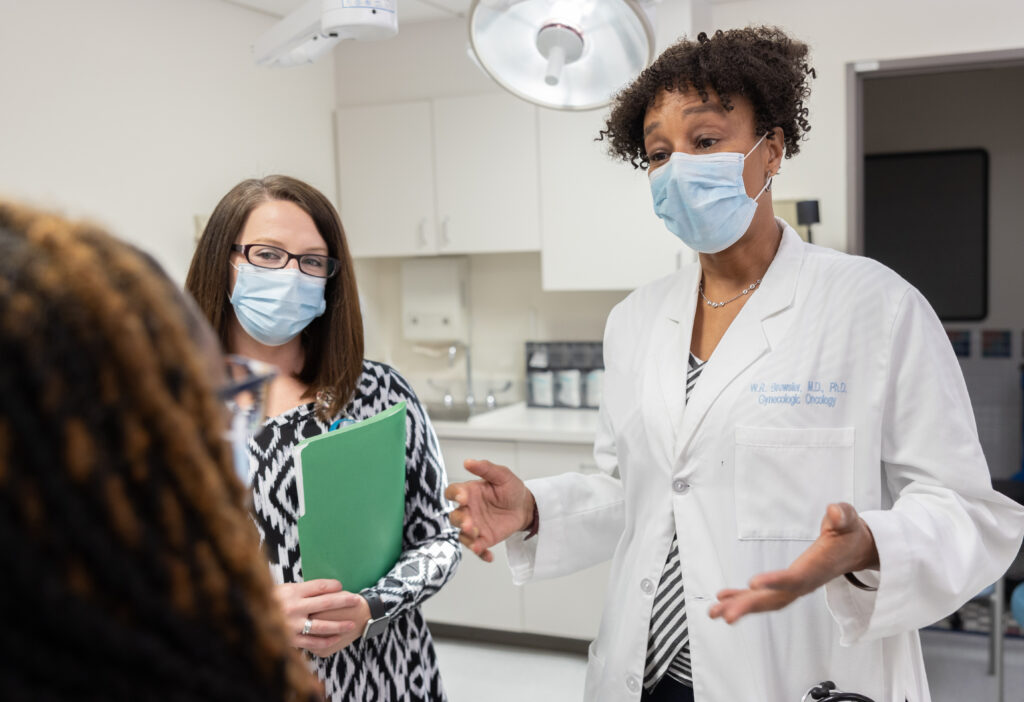
“We live in complex, complicated times that are made even more challenging during a pandemic. Equity must be integral to the conduct of research and clinical trial recruitment. We want UNC Lineberger to be to one of the first comprehensive cancer centers in the country to build transparent systems and interventions that will achieve equity in cancer care and outcomes.”
—Wendy Brewster, MD, PhD
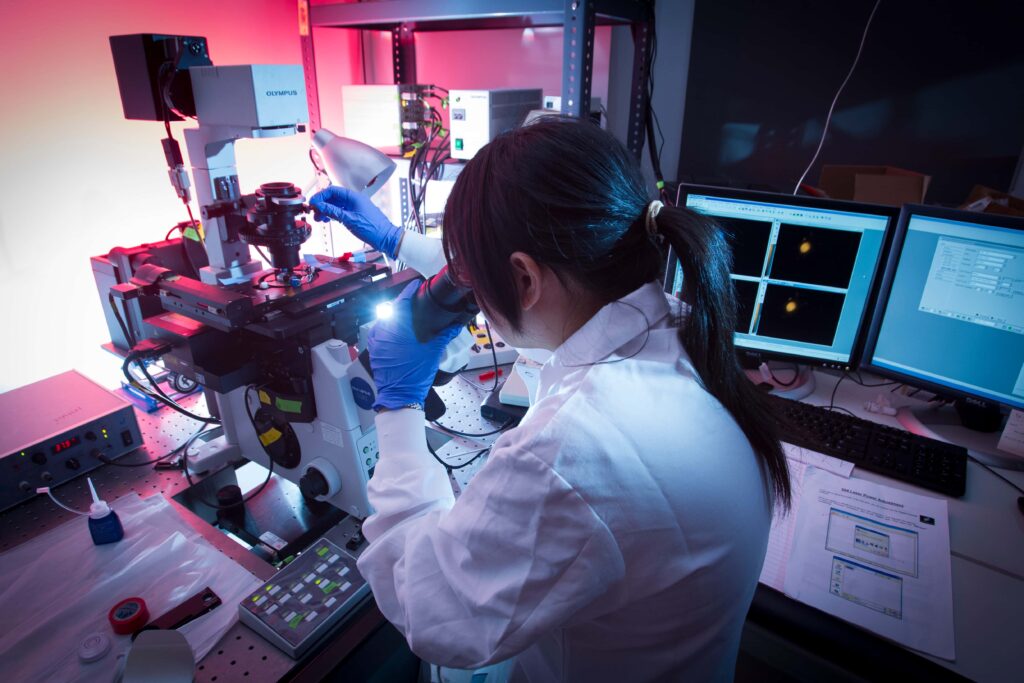
Gel enhances CAR-T immunotherapy benefits in brains surgically treated for glioblastoma
Gianpietro Dotti, MD, Edikan Ogunnaike, PhD, and colleagues demonstrated in a laboratory study that pairing a newly developed gel with CAR-T (chimeric antigen receptor T-cell) immunotherapy and then applying it to the area where a glioblastoma tumor had just been surgically removed improved the immunotherapy’s effectiveness.
Highly aggressive and currently incurable, glioblastoma is the most common form of brain cancer in the U.S. The researchers said if their findings can be replicated in human studies – they caution that many early laboratory findings don’t lead to clinical studies or new therapies – it would result in a great improvement in current treatment rates.
Read more about the early findings of this CAR-T study
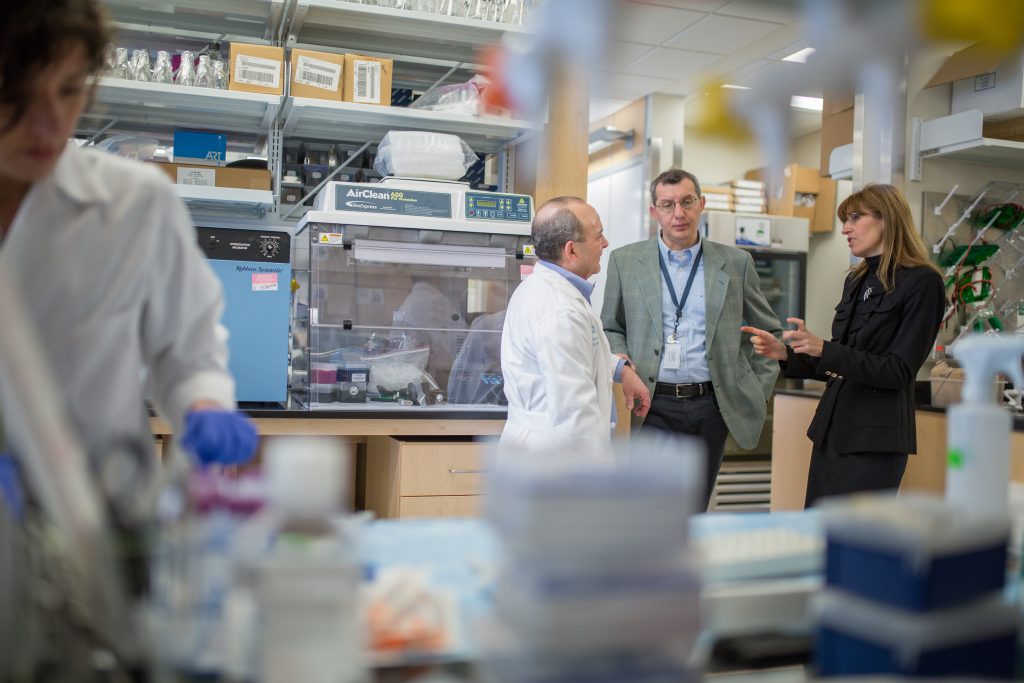
“Our approach was beneficial in glioblastoma, and we believe that it could also control growth or return of tumors in the brain, eye and other organs.”
—Gianpietro Dotti, MD
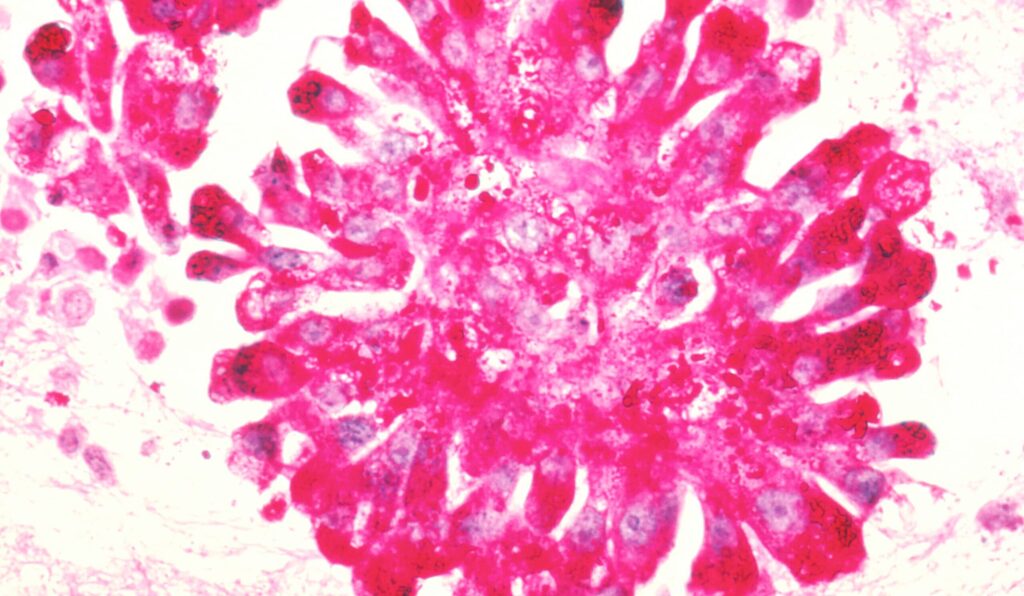
Ewing’s Sarcoma (credit to National Cancer Institute)
Researchers discover gene linked to bone cancer in children, identify potential novel therapy
Pengda Liu, PhD, Ian Davis, MD, PhD, and colleagues discovered a gene, OTUD7A, that impacts the development of Ewing sarcoma, a bone cancer that is diagnosed in approximately in 250 children and young adults in the U.S. each year.
They then screened 4 million small molecules and identified a compound that shows potential to block OTUD7A protein activity. The 7Ai compound reduced tumor formation in mice that were grafted with human Ewing sarcoma cells; it did not appear to be toxic and was well-tolerated.
Read more about the cancer genetics research
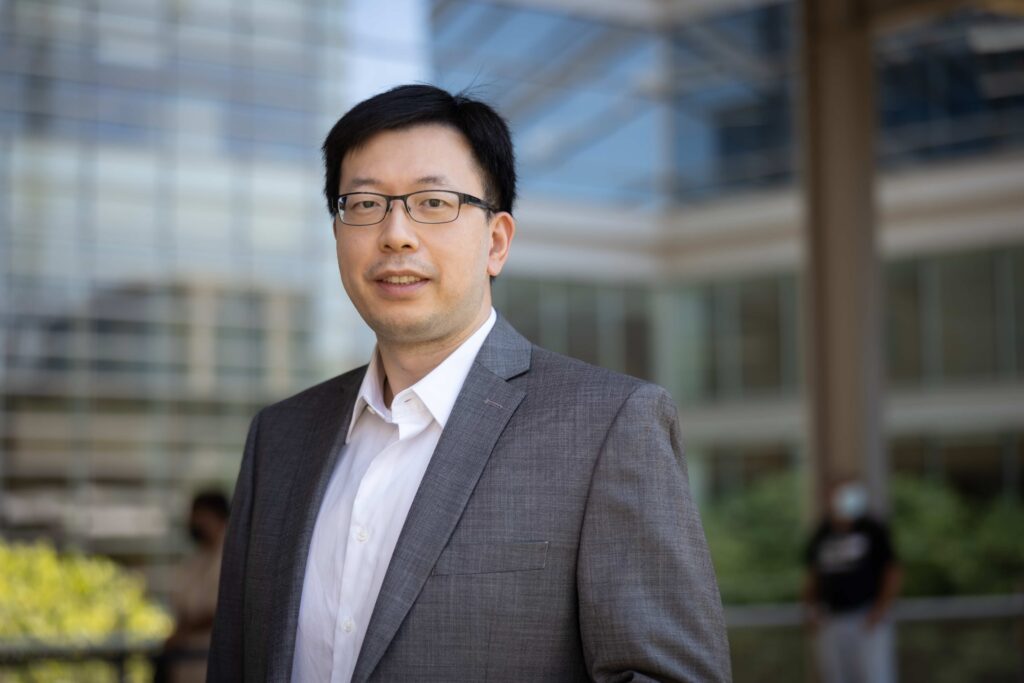
“Treatment with 7Ai could provide a new targeted therapeutic option for patients [with Ewing sarcoma] who become resistant to chemotherapy. Developing an effective drug will require more lab work and then clinical studies, however.”
—Pengda Liu, PhD
